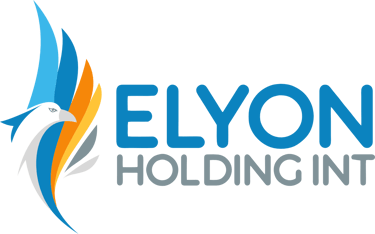Harnessing Knowledge: From Field-Tested Tools to Bold Insights
Discover how field-tested tools and shared insights drive sustainable success. Learn practical steps for knowledge sharing with Elyon Holding.
BLOGS
Helio Sixpence
5/7/20252 min read


Harnessing Knowledge: From Field-Tested Tools to Bold Insights
What are field-tested tools in development?
Field-tested tools are methods, frameworks, or practices that have been applied in real-world projects and proven effective through experience. Unlike theoretical models, these tools are refined by practical use and adjusted to fit local contexts.
For African development, field-tested tools include participatory planning methods, monitoring frameworks, and community-led evaluation systems. A UNDP report shows that projects using field-tested methodologies are 40% more likely to meet long-term goals compared to those relying solely on theory.
Why should experiences be transformed into insights?
Experiences become valuable when they are analyzed, distilled, and shared as insights. Without reflection, lessons remain locked within individuals or projects. Insights provide:
Scalability: Lessons can be applied to future projects.
Efficiency: Mistakes are less likely to be repeated.
Innovation: Bold ideas often emerge from reflecting on past practice.
At Elyon Holding, we encourage teams to document and transform experiences into actionable strategies that shape future success.
How does sharing knowledge drive future success?
Knowledge sharing allows organizations and communities to learn collectively. When tools and insights are openly exchanged:
Capacity builds faster across sectors.
Trust grows between stakeholders.
Collaboration strengthens for long-term sustainability.
For example, peer-to-peer learning networks in West Africa have improved agricultural outcomes by spreading tested farming techniques across regions.
What practical steps can organizations take to harness knowledge?
Document systematically – capture successes, failures, and lessons learned.
Create accessible platforms – digital libraries, workshops, or knowledge hubs.
Encourage collaboration – cross-sector partnerships ensure broader perspectives.
Turn insights into action – apply lessons to new strategies and frameworks.
By embedding these practices, organizations move from isolated successes to repeatable, scalable progress.
Conclusion: Building a culture of knowledge and insight
Knowledge is a resource that grows when shared. Field-tested tools give credibility, while bold insights push innovation forward. By transforming experiences into insights and fostering a culture of knowledge sharing, African organizations can accelerate sustainable development.
Elyon Holding supports this process by helping partners document, analyze, and scale lessons through our Adaptive Stability framework, ensuring strategies remain resilient and impactful.
FAQs
Q1: What are field-tested tools in development?
They are methods proven effective through real-world use, refined to fit local contexts.
Q2: Why is it important to transform experiences into insights?
Because insights make experiences scalable, prevent repeated mistakes, and drive innovation.
Q3: How does knowledge sharing help organizations?
It builds capacity, fosters collaboration, and ensures long-term sustainability.
Q4: What steps can organizations take to harness knowledge?
By documenting systematically, creating platforms, collaborating across sectors, and applying insights to strategy.
